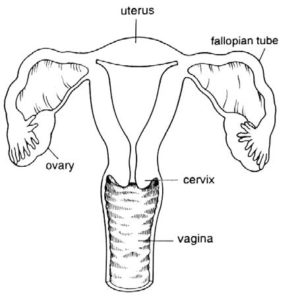Surgery to remove both ovaries before the age of 50 creates additional risks for women; additional risks that can be prevented if estrogen is taken at least until age 50.

According to the Centers for Disease Control and Prevention (CDC), hysterectomy is the second most frequently performed surgical procedure (after cesarean section) for U.S. women of reproductive age. That translates into approximately 600,000 hysterectomies annually in the United States; approximately 20 million American women have had a hysterectomy.
I recently interviewed Dr. Pauline Maki, a Professor of Psychiatry and Psychology at the University of Illinois at Chicago at the Annual Meeting of the North American Menopause Society (NAMS) about her research on the health risks of removing ovaries at the time of hysterectomy before age 50. Here is what she had to say.
“Some of the best data that we have suggests that women who have had their ovaries removed before the age of 48 have a 70% increased risk of Alzheimer’s disease. That is an enormous female specific risk factor for Alzheimer’s.” Removal of the ovaries before age 48 is also associated with an increased risk of Parkinson’s disease and other cognitive problems. Dr. Maki further stated that the increased risk of having ones ovaries removed early also increases the risk of developing cardiovascular disease, depression, anxiety disorders and overall mortality meaning a woman is more likely to die early if her ovaries are removed before age 48.
Women who have had their ovaries removed before the age of 48 have a 70% increased risk of Alzheimer’s disease
The good news is that if a woman does have her ovaries removed before the age of 48, she can undo all of those increased risks if she then takes the hormone estrogen at least until the age of 50, the normal age of menopause.
This is extremely important information for you to discuss with your doctor if you are younger than age 50 and are having surgery that includes removal of your ovaries. The operation per se is not the problem; but be sure to discuss with your doctor if you are a candidate for estrogen until at least age 50 to increase your chances for a longer and healthier life beyond the operation. Alternatively, consider delaying the operation until age 50 if that makes sense medically.





